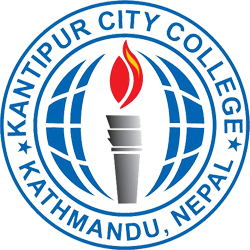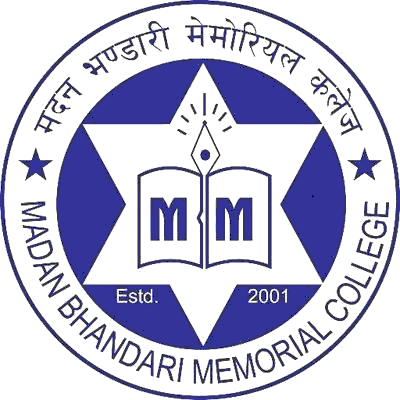Overview
Overviews of MA in Journalism and Mass Communication at Ratna Rajya Laxmi Campus , Dharan, Nepal (affiliated with TU)
The Master of Arts (MA) in Journalism and Mass Communication program, affiliated with Tribhuvan University (TU), is developed to equip students with advanced skills in journalism, media communication, and critical analysis of the media's role in society. This two-year academic program emphasizes the development of ethical, research-oriented, and creative media professionals who can contribute meaningfully to the ever-changing global media landscape.
Program Duration
The program lasts two academic years and is divided into four semesters. Each Semester involves intensive coursework, practical assignments, and research projects. To graduate, students must complete all required elective courses and a thesis in the final Semester.
Eligibility Criteria
-
Applicants must hold a Bachelor's degree in Journalism, Mass Communication, or any related field from TU or a TU-recognized university.
-
Students from science, commerce, or other streams are also eligible if they possess a Bachelor's degree.
-
The Aspiring candidates must pass an entrance exam conducted by TU's Faculty of Humanities and Social Sciences.
Admission Process
-
Application Submission: Fill out the form at the RR Campus administration office or on the website.
-
Entrance Exam: You must take the entrance examination, which assesses your aptitude and foundational knowledge in journalism and mass communication.
-
Merit-Based Selection: Admission is granted based on performance in the entrance exam and ranking in the merit list.
Subjects Offered
| Semester | Course Code | Course Title |
|---|---|---|
| 1st Semester | JMC 551 | Introduction to Mass Communication Theory |
| JMC 552 | Advanced Reporting | |
| JMC 553 | Advanced Editing | |
| JMC 554 | Broadcast Journalism and Media | |
| JMC 555 | History and Growth of Mass Media | |
| 2nd Semester | JMC 556 | Development Communication |
| JMC 557 | Political Communication | |
| JMC 558 | Research Methodology and Media | |
| JMC 560 | Principles and Practices of Public Relations | |
| 3rd Semester | JMC 561 | Intercultural Communication |
| JMC 562 | Media and Democratic Process | |
| JMC 563 | Social Media and Online Journalism | |
| JMC 564 | Research Application and Media | |
| JMC 565 | Principles and Practices of Advertising | |
| 4th Semester | JMC 566 | Media Law |
| JMC 567 | Photojournalism | |
| JMC 568 | Media Issues | |
| JMC 569 | Global Media and Journalism | |
| JMC 570 | Thesis Writing |
Program Objectives
-
To train students for leadership and managerial roles in journalism and communication.
-
To empower critical thinking and problem-solving skills for addressing complex communication issues.
-
To foster research-oriented approaches to investigate, evaluate, and report on media trends and societal impacts.
-
To instill ethical values and responsible practices in media and journalism.
-
To comprehensively understand how media influences public opinion and societal dynamics.
Teaching Methodology
The program integrates lectures, workshops, and hands-on training sessions. Practical assignments such as reporting, editing, and content production are emphasized alongside theoretical studies. Research-oriented tasks, case studies, and multimedia projects ensure students gain real-world exposure and are prepared for diverse professional challenges.
Learning Outcomes
Graduates of the program will:
-
Develop advanced skills in reporting, editing, and multimedia content creation.
-
Analyze media's role in political, social, and economic contexts.
-
Conduct independent research and present findings in academic or professional formats.
-
Demonstrate ethical and responsible journalism practices.
-
Adapt to emerging trends in digital journalism and mass communication technologies.
Future Scope
The program prepares students for further academic pursuits, such as an MPhil or PhD in Journalism and Mass Communication. Graduates can also explore careers in:
-
Print and digital media platforms.
-
Advertising and public relations agencies.
-
Content production and media management roles.
-
Research and teaching positions in academic institutions.
Career Prospects
Graduates of the program have opportunities in diverse fields, including:
-
Anchors, reporters, and editors in TV, radio, and newspapers.
-
Social media managers and digital content strategists.
-
Communication officers and PR specialists in corporate and government sectors.
-
Freelance journalists, media consultants, and researchers.
-
Media campaigners and NGO/INGO communication experts.
Scholarship Opportunities
The RR Campus provides scholarships to meritorious students and those with financial need, ensuring access to quality education for deserving candidates. In addition to institutional scholarships, students can apply for financial aid offered by Tribhuvan University and various national and international organizations that support journalism studies.
These scholarships recognize academic excellence, leadership potential, and socio-economic challenges, making higher education more accessible. RR Campus also facilitates guidance on applying for external grants and fellowships, empowering students to seek additional funding opportunities for their academic pursuits. This comprehensive support system significantly enhances the program's accessibility and inclusivity.
Fees Structure
The campus administration determines the fees, which vary based on the Semester or annual system. The RR Campus office provides detailed information.
Extracurricular and Co-Curricular Activities
Students are encouraged to participate in debates, media workshops, and internships to build practical skills. Expert guest lectures and visits to media organizations offer valuable insights into journalism and mass communication.
Practical Application
The program bridges theoretical knowledge with practical applications, ensuring students holistically understand journalism and mass communication. Assignments such as real-world reporting, video production, and comprehensive media ethics case studies are integral to the curriculum.
These activities help students address challenges in dynamic media environments and foster innovation and adaptability. By combining practical exposure with theoretical insights, the program prepares students to excel in professional roles while maintaining ethical standards and contributing meaningfully to society.
Sustainability and Social Impact
The program emphasizes the role of the media in enhancing sustainable development and addressing social issues. It prepares students to use their skills to promote positive societal change and uphold ethical journalism standards.
Skill Development
Students develop critical analytical skills, effective communication abilities, and technical expertise in digital tools, enabling them to address complex challenges in the evolving media industry. They gain hands-on experience with advanced software, learn to interpret large datasets and master various digital platforms for content creation and dissemination.
Training in research methodology sharpens their ability to conduct in-depth analysis and produce evidence-based insights, while comprehensive data analysis exercises prepare them for high-stakes decision-making roles. This holistic approach ensures that graduates are well-equipped to fulfill the demands of the global media landscape and contribute innovatively to the field.
Global Perspective
The curriculum incorporates global case studies and international media trends, providing students valuable insights into diverse cultural perspectives and global communication dynamics. By studying case studies from various regions, students develop the ability to navigate cross-cultural contexts and address complex communication challenges.
Additionally, the program emphasizes understanding international media policies, global journalism ethics, and the impact of cultural differences on media strategies. This comprehensive approach ensures students are well-prepared to collaborate in multicultural environments, apply their skills effectively globally, and contribute meaningfully to international media and communication landscapes.
Facilities and Support
RR Campus offers state-of-the-art facilities, including modern classrooms, computer labs, and a well-equipped library. Career counseling, mentorship programs, and internship opportunities also support students.
Why Choose the MA in Journalism and Mass Communication Program?
This program offers a unique combination of theoretical knowledge and practical experience, enabling students to excel across diverse media platforms such as print, digital, and broadcast. It fosters critical thinking, advanced research skills, and adherence to ethical standards, ensuring that graduates are well-prepared for leadership and innovative roles in the communication industry. By integrating hands-on training with academic rigor, the program provides a solid foundation for addressing complex challenges in the modern media landscape.
Why Study for an MA in Journalism and Mass Communication at RR Campus?
RR Campus provides a comprehensive learning environment with experienced faculty and modern resources. Its affiliation with TU ensures academic excellence and global recognition. The campus's location in Kathmandu exposes students to Nepal's vibrant media industry, providing unparalleled opportunities for practical learning and professional networking.
Is the MA in Journalism and Mass Communication Program Right for You?
If you are passionate about media, storytelling, and influencing public discourse, this program is ideal for you. It caters to aspiring journalists, media managers, and communication specialists seeking advanced education and professional growth.
What is the Future of the MA in Journalism and Mass Communication Program?
The program's relevance continues to grow with the rapid evolution of digital media and the increasing interconnectedness of global communication networks. As the media industry adapts to advancements in technology and shifting audience preferences, graduates are uniquely positioned to take on influential roles in the future of journalism, media management, and communication strategies worldwide. They are equipped to leverage innovative tools, adapt to emerging trends, and address complex societal issues through responsible and impactful media practices. The program ensures that students are not just participants but leaders in transforming the global media landscape.
How can you improve your study of journalism and mass communication as a student?
To excel in this field, stay updated on current events, practice writing and editing, and explore various media platforms. Engage in internships, participate in workshops, and collaborate with peers to enhance your practical skills and professional network.
Conclusion
The MA in Journalism and Mass Communication course at RR Campus offers a robust academic foundation, practical training, and opportunities for innovation. By fostering ethical practices, critical thinking, and advanced technical skills, the program prepares students for impactful careers in journalism and communication.
Contact Ratna Rajya Laxmi Campus's administrative office for detailed information on the MA in Journalism and Mass Communication course, including fees, scholarships, facilities, counseling, eligibility criteria, etc.















